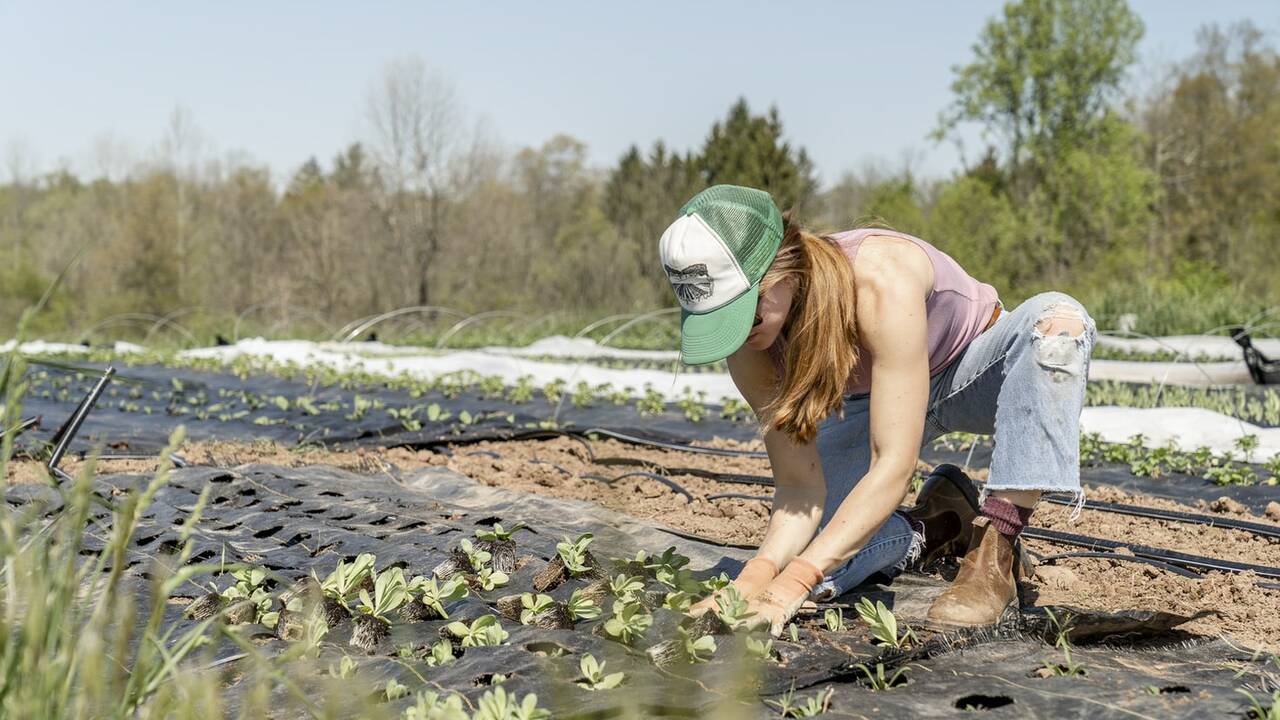As people begin developing gardens, several gardeners question themselves, "What is organic gardening precisely?" How this qualifies a vegetable patch as natural, and also what allows a garden as non-organic? However, organic agriculture implements only several fundamental rules that could be used to identify something from traditional agriculture.
Rather than just synthetically generated fertilizers and other significant ecological hazards, organic gardening relies on upon organically sourced, perishable materials. Horticultural sediment is also treated as a flourishing ecosystem that has to be fostered in sustainable agriculture, whereas soil is treated as a neutral potting medium in mainstream growing vegetables. Since both approaches can develop crops, conventional agriculture is seen to be more environmentally friendly.
What Was the Origin of Organic Gardening?
Organic farming is founded on the principle of mimicking the natural environment. Following contemporary standards, all residential gardeners would also have been "ecological" before inorganic natural resources had all been invented. The contrast between organic and standard agriculture has only been necessary because since the development of manufactured contaminants.
Why Is Choosing Organic Gardening So Beneficial?
There have been numerous advantages to organic gardening compared to traditional gardening. So here are some of the far more critical things why horticulturists opt for conventional farming:
- Produce chemical-free (and chemical-free) crops;
- Provide secure necessities to workers.
- Instead of disturbing the ecological system equilibrium, understand this and imitate nature's mechanisms.
- Chemical fertilizers (carried in by air, earth, plants, or vegetables) should not be used inside your household.
- Eliminate the movement of pesticides and fertilizers across your land to help the environment.
- Cultivate native plants to provide refuge for local wildlife.
- Instead of dangerous ground with pesticides, promote healthier soil biodiversity.
What Is Organic Gardening and How Does It Work?
Upon selecting to establish an organic farm rather than a standard vegetable patch, many considerations arise. How can you keep bugs at bay without using weed killers? Without fertilizers, how would you nurture your crop production? With many unique agricultural supplies on the market, it's challenging to know what would be appropriate for organic gardening and what's not.
Monitoring and recreating the environment is crucial to the development of an organic garden. Plants can flourish in ecology without ever being fertilized, pruned, or watered. The system takes care of everything by itself, resulting in a thriving environment that requires no human intervention. Understanding from and copying the environment is essential for growing a successful organic garden.
Nevertheless, organic gardening is also not a developing thing, and that there are many excellent materials available to help you maintain a better organic garden. A thriving landscape can be achieved by focusing on plant growth, employing sustainable means of nurturing crops, and controlling insects holistically.
Making Plans For An Organic Garden
One of the most critical aspects of establishing an excellent organic garden is management. Instead of forcing crops that don't appropriate the weather, organic gardeners prefer to use crops adapted to the weather patterns and other external factors. Selecting the appropriate product for the correct position can yield considerably more results overstraining a crop to develop in an area where everything won't normally develop.
Intensive agriculture aims to imitate nature rather than dominate it. Sophisticated applications of vegetable patch management, including sustainability, especially involve organic farming, apply this model of copying environment towards the next standard.
How to Begin an Organic Garden
Organic gardening is simple; all it takes is a little awareness and imitation of what has been going on in the environment. Organic gardening promotes a conscious control of the ecology that has already been forming in the garden while offering a valid measure of healthful food.
As opposed to traditional horticulture, organic gardening seems to be an excellent opportunity to connect with the environment while simultaneously engaging in a helpful activity.



Comments(3)